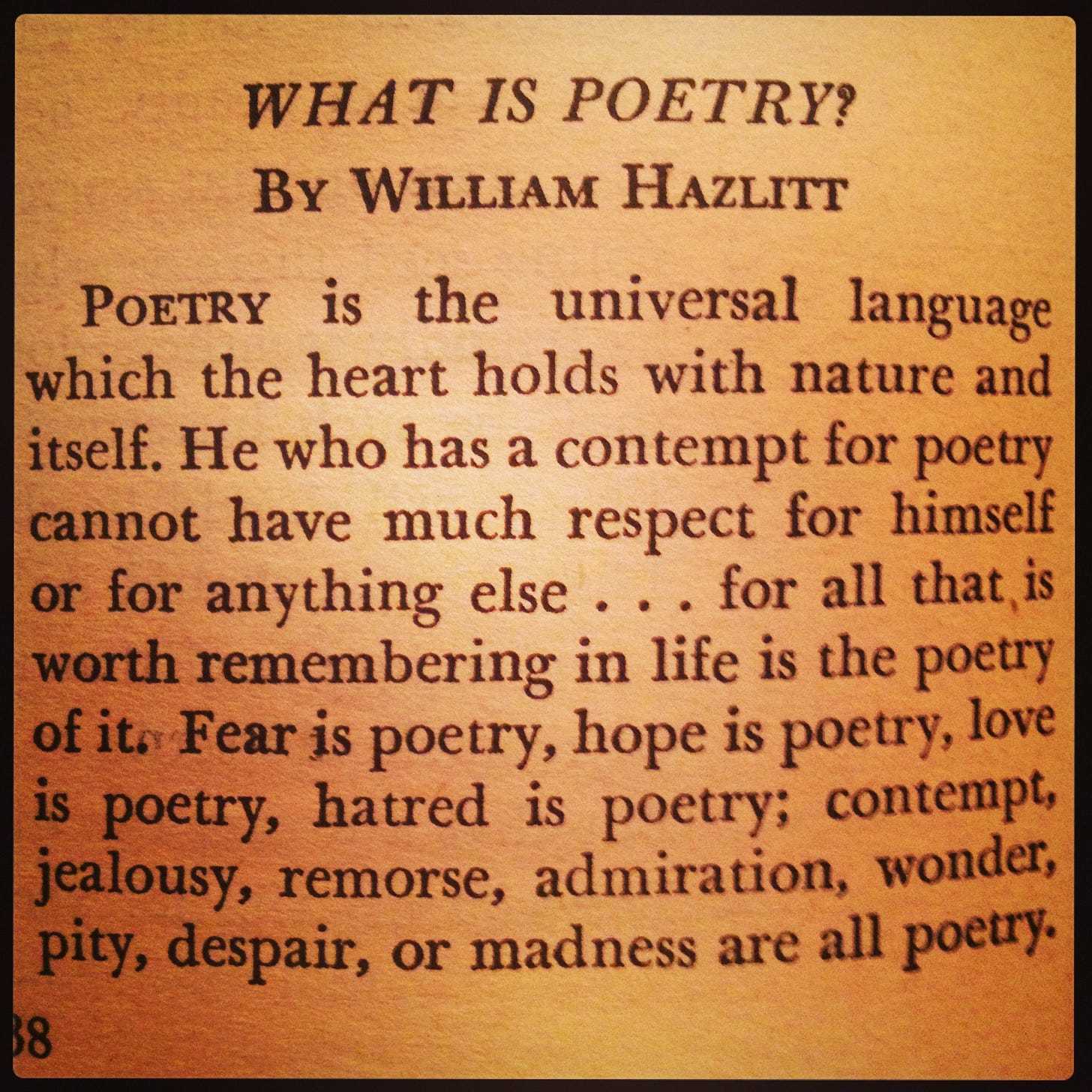🧵Thursday Thread: What are the most powerful ways you write or have written without actually writing, without even picking up a pen?
The significant story is always greater than the writer writing it. This is the absurdity, the disorienting truth, the question that is not even a question. This is the koan of writing. ~Joy Williams
Hi, hi! Three fast announcements!
One, we have several events coming up (manage/upgrade here to join, all Zoom links emailed day of)
📝 Wed June 5, 8:30 AM Write-In (paid)
🕯️Wed June 12, 8 PM CT, Candlelight Yoga Nidra (founding)
🕯️Fri June 21, 1 PM CT, Celebratory Live Solstice Salon w/open mic (founding)
📝 Thursday, June 27, 5:30-8:30 PM/ CT Live Class on Zoom: The Feeling of What Happens: Advanced Techniques for Writing That Stirs Emotion
Two, I made a FAQ for new members of Writing in the Dark to help you know where to start and how to get the most out of this space long-term. It’s called How to Actually Write in the Dark: Everything You Need to Know to Begin. I’m told it’s very helpful so I wish I’d written it sooner, but, then again, as I keep saying, we’re still building this ship.
Three, if you haven’t yet heard about this new opportunity to submit your work to WITD for publication, you can read all about it here:
Call for Submissions! Writing in the Dark Now Pays for Essays, Stories, and Poem-ish Things!
Accepted pieces receive publication, $50, and much love.
Now, for today’s thread. I am so enjoying yesterday’s post on writing process because your observations have been so precise, illuminating, and, in some cases, earth-shaking.
And one of my favorite aspects of the conversation is the bit around how sports psychologists emphasize process goals. This is so fascinating to me—and makes so much sense—that I am now certain I’ll be writing about it in the near future.
In the meanwhile, though, what I am thinking about for today’s thread is how helpful it can be—life-changing, truly—when we start to see these kinds of overlaps everywhere. When we start to more easily recognize how one thing can be like another.
And this got me to thinking about that feeling, the one where we get wholly lost in the writing, where we are in another dimension, on another plane, where the line between the “real” world and the world of the writing does not disappear, exactly, but, instead, reverses somehow, so that it is the writing that is more real, and the physical world that is somehow now unfamiliar and even slightly distant, hard to access.
Do you know what I mean?
That feeling, for me, is akin to the immersive, all-encompassing, totally transcendent nature of pretend play. Those childhood afternoons spent with friends inside a world of make-believe, where we used our whole bodies to imagine and become and build a shared reality, an imagined reality, where rules were constantly shifting under the weight of our own will and opening in response to our own desire. That kind of immersive play was exhausting, exhilarating, and transforming.
One of the times I got closest to that feeling in adulthood was a rainy afternoon several years ago when my husband and I were frantically setting a stone path as part of the backbreaking landscape work we were doing in our yard in preparation for hosting my stepdaughter’s wedding. My job in this case was to find the smaller stones to fill in the gaps between the larger stones, which sounds simple, but was actually strangely challenging, searching around the yard in the rain for a stone just this size or that size then digging it into its spot between the larger stones, constantly wiping mud and rainwater from my eyes. After a while—maybe an hour, maybe two—it was almost like I didn’t exist anymore, and nor did the world as I’d known it exist. All that existed were muddy gaps and slick, wet rocks and my sturdy hands, finding a match between the two. It was so satisfying. I could have gone on that way forever.
Writing—when I am all the way inside it—is like that for me.
What about you? Is there an activity or experience you can identify that has nothing at all to do with writing but that, when you step back and view it from a distance, feels exactly like writing? Let’s share! Because this, too—this attuning to how the “feeling” of writing can manifest in daily activities—is part of how we write in the dark.
So, let’s shine a little light for each other.
Love,
Jeannine
PS Threads/comments are for paid members; you can upgrade/manage your membership here any time. Thank you so much for reading Writing in the Dark!






